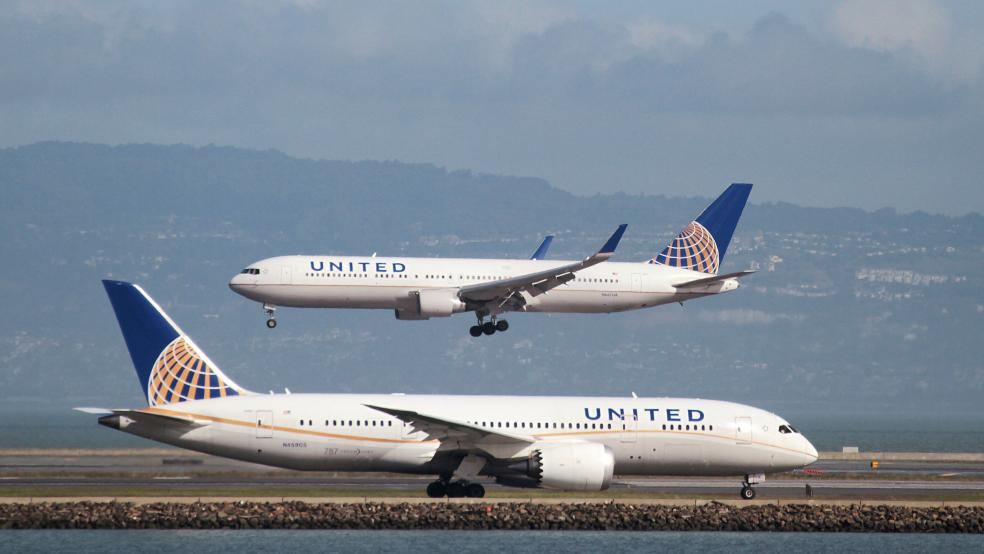United Airlines might have had the worst customer service and public-relations month for any business entity since New Coke nearly derailed Coca-Cola’s dominance of the soft-drink market three decades earlier. The airline has blundered from position to position in the aftermath of an assault it instigated on one of its customers before belatedly apologizing. Even now, though, its response does not reflect a lack of empathy with customers, but speaks volumes about American culture – and why anti-establishment fervor goes well beyond the political.
On April 9th, the airline tried to boot four paying passengers off a full flight from Chicago to Louisville to get four of its own employees on time to work another flight. Attempts to offer the usual financial inducements to its customers failed, and the airline then revoked the tickets of four paying passengers who had already boarded the plane.
Related: Why The United Airlines Incident Could Happen to Anyone
When one refused to give up his seat, United then had airport police yank him out of his seat, reportedly fracturing his nose and breaking two teeth – all while other passengers stared on in horror and objected loudly to the scene unfolding in front of them. Several recorded video on their smartphones and clips of Chicago’s police dragging David Dao down the aisle went viral immediately.
If the decision process that led to that outcome wasn’t bad enough, the airline’s CEO offered an inexplicable series of statements that only poured gasoline on United’s flaming-out reputation.
At first, Oscar Munoz apologized – but only for the situation in which United needed to “re-accommodate” four passengers on the flight, not to Dao. Instead, Munoz wrote to United employees the next day that their colleagues had “followed established procedures,” blaming the incident on a “disruptive and belligerent” passenger who had disrupted the flight by, er, wanting to fly home. Only two days after the assault on Dao did Munoz finally apologize for the “truly horrific” removal of Dao, pledging to “fix what’s broken so this never happens again.”
It took three tries for a major corporation to admit it erred in pushing airport security to assault and eject a paying customer whose only crime was to board the airplane and decide not to sell back his seat. Ironically, this took place just after PR Week named Munoz its US Communicator of the Year. The press release in early March highlighted Munoz’ track record in “helping to curtail customer service problems caused by disgruntled staff that had long plagued the airline.” Ahem.
This week shows that Munoz hasn’t improved much, either. On a conference call with reporters to discuss its first-quarter financial report, Munoz declared that no one would be fired over the incident, including himself. "It was a system failure across various areas," Munoz explained. "There was never a consideration for firing an employee."
Related: United Airlines Has Another Major Problem
It was the system! The “system” – rather than an employee – decided to give a higher priority to United staff rather than paying customers. The “system” didn’t think to offer a higher incentive for volunteers, either. The “system” called the police rather than a United employee, or maybe the “system” made the employee sic airport police on their customer. Munoz’ response seems to suggest that the “system” is so all-powerful that even the CEO bears no responsibility for it.
Unfortunately, “the system” gets a lot of blame in a lot of places, and seems to grow more omnipotent as organizations get larger. When those in responsible positions want to avoid accountability, they blame “the system” rather than the people who misuse and abuse their authority. And don’t think Americans haven’t noticed it.
In the private sector, this problem has become more pronounced as businesses grow larger and choice disappears for consumers, whether through consolidation or regionalization. The airline industry has experienced both, leaving most consumers with one choice for non-stop flights in most locations, even in regional hubs such as those running down the middle of America.
It’s also true in other markets, such as cable providers and cell-phone companies in the retail industry, and defense contractors and other critical areas of industrial America. Consolidation turned banking and finance from customer-oriented businesses to “too big to fail” that requires its customers to bail them out. That’s just another form of saying “It’s the system.”
Related: The Veterans’ Hospital From Hell Operates in the Heart of the Nation’s Capital
However, it’s in the public sector where voters have grown weary of hearing about failures of the “system” while accountability dissipates. The IRS targeted conservative groups for their politics, and no one lost their jobs. The State Department knowingly left the Benghazi consulate with substandard security in a city where terrorists operated openly, and no one lost their jobs over that, either.
Veterans Administration facilities left patients to die on secret wait lists that allowed officials to collect taxpayer-funded bonuses, and only one person got fired directly for that corruption in the four years since its exposure. The Defense Department has never completed an audit and has $8.5 trillion unaccounted expenditures. It’s the system, we keep getting told, not people who commit corruption and gross negligence.
It’s not a coincidence that voters elected a president who promised to disrupt these systems, fire a significant portion of the bureaucracy, and target the “administrative state.” People want accountability, not just from the businesses they patronize but also the government over which they have sovereignty.
United’s treatment of Dr. Dao infuriated people because of its blatant disregard for his safety, but also because we identify with him as consumers and citizens. Munoz’ shrug at the “system” sounds a lot like the kind of accountability avoidance that has inspired a renewed populism in the US, and leaders within both the public and private sectors had better start providing better responses if they want to keep up.






